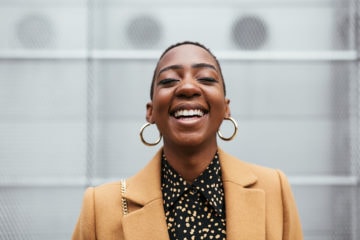Girls in Tech recently had a chance to talk with Lisa Schneider, Chief Digital Officer at Merriam-Webster, who will join us as our keynote speaker for our latest panel, Pivot: Lessons in Changing Courses, taking place on November 12 at 5 p.m. ET. She shared with us learnings from her own career and how her company has approached and embraced digital. We also talked about the importance of being able to pivot in industry and in life.
Girls in Tech: Tell us a little bit about your career path. How did you get to where you are today?
Lisa Schneider: I was an English major, and as many do I went into marketing. I was marketing director at Bridal Guide magazine when we launched our first website, and I was curious and intrigued by this new area and decided to devote my efforts to managing that piece of the business. This was the early days of the internet, and it was much easier to get in and grow up with it. I’ve spent most of my career on digital strategy and product innovation, and I am now Chief Digital Officer at Merriam-Webster. I’m responsible for all of the digital strategy and execution across the brand. For me, strategy and innovation isn’t about doing a lift-and-shift from one platform to another: It’s about taking your core value and mission and finding creative ways to iterate that for different audiences on different platforms.
GIT: Can you talk a little about Merriam-Webster’s digital strategy?
LS: Our mission is to propagate our irrational love of the English language, and to help people understand and use language better so they can better understand and communicate with the world around them. We do that by finding ways to connect with people differently across channels. One of the most-recognized parts of our strategy has been showing our relevance and personality on social media. That resulted in things like expanded press coverage, awards, and better SEO. And that ecosystem means people think of us for language-related content and services outside of “just” being a dictionary. We are able to partner with others to expand our competencies and bring new products to market quicker—for example, we recently partnered with New England Public Media to create a podcast, Word Matters, that’s doing really well—and launch new products that people pay attention to, such as our (also award-winning) vocabulary learning app, Puku.
GIT: What major moments in your journey come to mind when you think about pivoting or shifting gears?
LS: My origin story I suppose is a big one. Coming to Merriam-Webster is another. Dictionary content is truly unique, and requires different strategies and tactics than most other content publishing. The SEO is different, technology is different, everything is different. I had to have a learning mindset and leverage that as a leadership skill as well as a personal development skill. You cannot walk into an organization like this and change everything without listening to those who have 40 years of experience. You have to be able to lead and listen.
GIT: What kind of change would you still like to see in the industry?
LS: I would say we have to stop calling things like listening and empathy “soft skills.” I’ve always naturally leaned into this, and it’s how we drive collaborative, lasting change. People have to know that they were legitimately heard, and they need to know why you are making the decisions you are. We took an organization that had been doing things much the same way for nearly 200 years, and we’ve made so much progress in the last five that it would make your head spin. But you need to get buy in. The ability to listen and work with others is absolutely critical.
GIT: Why is pivoting more important now than ever before?
LS: It goes back to the pace of change. If you do the same thing, you will be disrupted. That’s true of businesses, and it’s true of people. Whether it’s as a leader on behalf of your business or as an individual, you need to be able to adjust as your environment adjusts. Think about the idea I shared earlier of taking the core value and mission of a company and finding creative ways to share that on different channels and platforms, and then apply that to your skill set and how you position yourself to move to different roles, across different industries. Being able to move with that kind of agility will help ensure the longevity of your career.
Lisa will share more of her thoughts on the importance of pivoting and how to do it effectively at the event, along with other distinguished panelists. You can sign up here!





